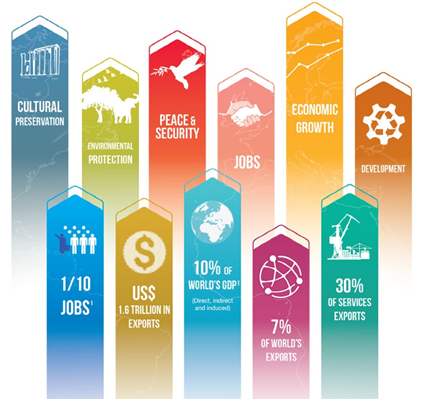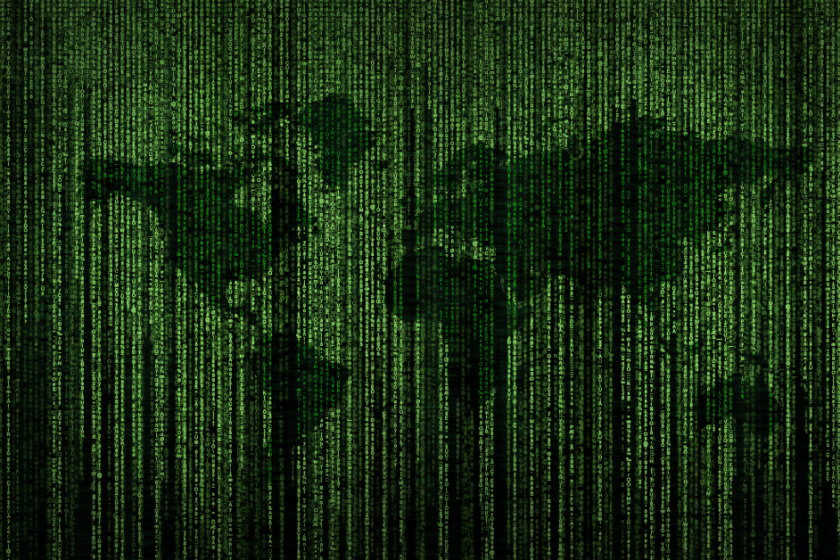Imagine a future where people don’t travel to experience tourism. Thats where I see this going. Hear me out. I’m not talking about augmented reality. I’m not talking about virtual reality in its current form, either. We already have both of those. We’ve had them for years. I’m talking full on ‘The Matrix’ style immersion into a place so real that your brain can’t tell you aren’t really there.
You might be sitting there thinking, “Don’t be ridiculous, The Matrix is just as unrealistic today as it was when it came out in 1999 (Yeah, it came out almost 20 years ago, isn’t that nuts?). But I’ve got news for you – it isn’t. In 2010, we already had a headset that could read brainwaves and use them to control mechanical objects. Since then, things have gotten even more interesting. First there was Oculus Rift, then there were mass market virtual reality headsets made by HTC, Samsung, and others, and now experts are predicting we’re only about 30 years away or so from fully immersive virtual reality, which is the fancy science phrase for being in the matrix. Of course, there are quite a few pretty smart people out there that believe that, based on probabilities, we most likely already live in a simulation. If that is true and then we create immersive virtual reality within the simulation that we already live in…are we approaching ‘Inception’ levels of reality issues? That is a question for another day. The question I want to answer here is, what if fully immersive virtual reality really does become possible in the next 30 years?
Traveling without traveling could become the norm. Let’s think about the implications of that for you as a traveler. Let’s think about what that means for the economy, the environment, and society as a whole.
The Economy
Lets start with the economy. According to the United Nations World Tourism Organization, there were 1.3 billion international tourism arrivals in 2017, accounting for $1.6 trillion in exports, 1 out of every 10 jobs in the world, and 10% of the world’s GDP. If you’ve studied tourism, this probably doesn’t surprise you; if you haven’t, it might be a bit of a shock. The economic impact of tourism is HUGE – and some of those numbers do not include domestic tourism, which is much more common than international tourism. It is estimated that between 69% and 85% of all trips are domestic, but they are much harder to measure than international arrivals, so our data isn’t quite as accurate. It is difficult to imagine the economic ramifications of a tourism industry that shifts, even partly, to traveling without actually going anywhere. Of course, not all travel is for tourism purposes, but if even a small percentage of people who would have otherwise taken a trip did not, there would likely be an enormous loss of jobs and the benefits those jobs have across the economy. In an era where a great deal of service jobs in the tourism industry are already being lost to automation (Have you ever ordered your meal from a touchscreen device? Checked into your hotel and gotten your room keep on your phone and bypassed the front desk? Those two advances are already costing jobs), additional loss of a valuable source of employment could be catastrophic for some areas, especially those which are heavily depended on tourism like many sand, sea, and sun destinations.

The Environment
While the economic implications of a fully immersive virtual tourism experience may seem dire, the environmental impacts tend to skew toward the positive. If we’re being honest about the tourism industry, it isn’t great for the environment. The act of traveling, whether its in the car, on a train, on a boat, or by plane, consumes energy and creates other, less obvious strains on natural resources. When we travel, we also tend to be a little less frugal with our use of natural resources as well (who doesn’t like a little extra time in the shower under that waterfall shower-head we don’t have at home?). The point is, just like the vast majority of other industries, tourism is consumptive. So if a bunch of people all of the sudden are not traveling to travel anymore, thats a good thing. Right? Probably so, but there are also other hidden impacts to think about. One of the positive impacts that tourism has on the environment is that it gives us a reason to protect natural resources that people want to see in their travels. If we don’t actually need to go to a place to see it, that may eliminate the need to protect it. National Parks? Not really useful if you can plug in and be inside the Grand Canyon or scuba diving in the Great Barrier Reef.
Society and the travel experience
Societal impacts are where things get a little bit more tricky. There are all sorts of well-documented societal impacts of tourism on the negative side there are impacts from cultural appropriation to traffic and crowding and on the negative side to cultural preservation and increased quality of life on the positive side (check out this page for a review). One of the big reasons people travel is to experience culture, and culture is complicated. It includes architecture, language, food, religion, festivals, and so much more. So the question is, if travel becomes virtual, who decides what the virtual experience entails? How do you program how a scratch cooked meal from a recipe handed down generations tastes? And what about social interactions? One of the great things about travel is the unexpected interactions with someone at a grocery store or on the sidewalk or on a tour. Do those interactions go away in a fully immersive virtual trip? Or will we have ‘hosts’ plugging in to the virtual experience as well? What about interactions with people you’re traveling with? Can you and your friends plug into the same ‘trip’ and have your travel experience together like you normally would?
The bottom line
If the future is indeed going to be fully immersive virtual reality travel experiences, there is sure to be upheaval in the tourism industry. There are all sorts of questions to be answered about who decides what goes into a virtual travel experience and what that means for places where tourism plays an important economic, environmental, and sociocultural role. Technology will likely continue to move forward at a blistering pace, and we need to think about how to address these implications before they become a reality.

